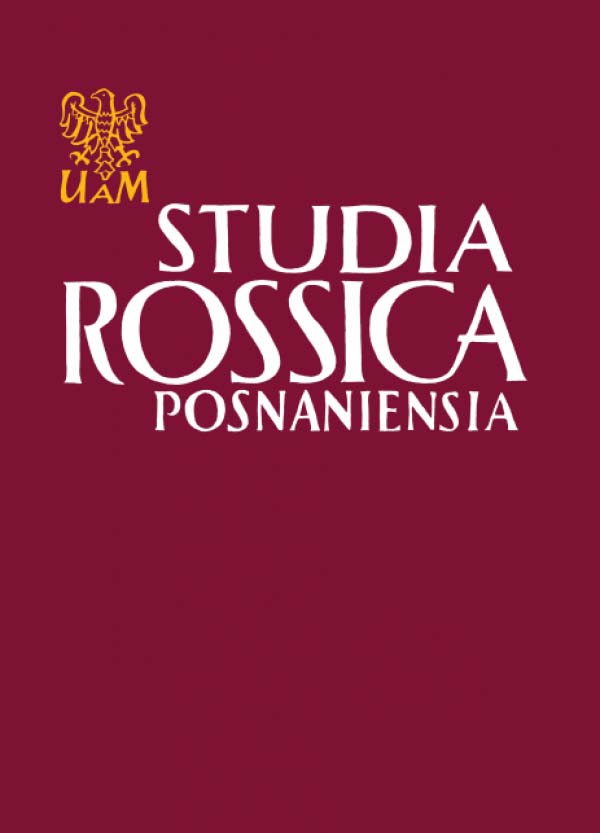The use of the auxiliary verb in 2nd person singular perfect verbal forms in Old Russian documents of the 14–16th centuries
The use of the auxiliary verb in 2nd person singular perfect verbal forms in Old Russian documents of the 14–16th centuries
Author(s): Maciej WaraczewskiSubject(s): Language studies, Philology
Published by: Uniwersytet Adama Mickiewicza
Keywords: perfect; auxiliary verb; subject; Old Russian documents
Summary/Abstract: The article analyses 2nd person singular perfect forms in a collection of Old Russian documents of the 14–16th centuries. The main focus is placed on their formal aspects and the transition from an analytic to synthetic form. The process itself is well-known, yet it still lacks a detailed description and fully explained reasons for its occurrence. The author, providing statistical data on the use of the auxiliary verb byti and explicitly expressed subject, proves its great regularity. There is a strong dependence between the two items and usually only one of them is applied with perfect constructions. This shows that the function of the auxiliary verb has been completely changed and in the period described it played only the role of a person indicator. Thus, it became redundant when the use of personal pronouns was increased. All the exceptions to this rule are scarce and can be explained with factors of a syntactical or extra-linguistic character. The author’s assumptions are confirmed with statistical data and examples taken from spiritual and contractual charters of grand princes and appanage princes in the XIV–XVI centuries.
Journal: Studia Rossica Posnaniensia
- Issue Year: 45/2020
- Issue No: 2
- Page Range: 235-242
- Page Count: 8
- Language: English

